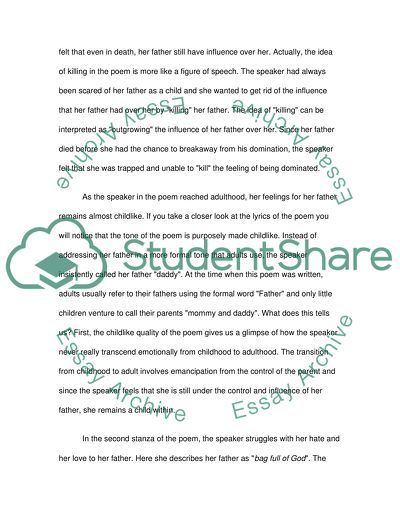Cite this document
(Close Reading of Sylvia Plath's Daddy Essay Example | Topics and Well Written Essays - 1250 words, n.d.)
Close Reading of Sylvia Plath's Daddy Essay Example | Topics and Well Written Essays - 1250 words. https://studentshare.org/literature/1544825-close-reading-of-a-poem
Close Reading of Sylvia Plath's Daddy Essay Example | Topics and Well Written Essays - 1250 words. https://studentshare.org/literature/1544825-close-reading-of-a-poem
(Close Reading of Sylvia Plath'S Daddy Essay Example | Topics and Well Written Essays - 1250 Words)
Close Reading of Sylvia Plath'S Daddy Essay Example | Topics and Well Written Essays - 1250 Words. https://studentshare.org/literature/1544825-close-reading-of-a-poem.
Close Reading of Sylvia Plath'S Daddy Essay Example | Topics and Well Written Essays - 1250 Words. https://studentshare.org/literature/1544825-close-reading-of-a-poem.
“Close Reading of Sylvia Plath'S Daddy Essay Example | Topics and Well Written Essays - 1250 Words”. https://studentshare.org/literature/1544825-close-reading-of-a-poem.


